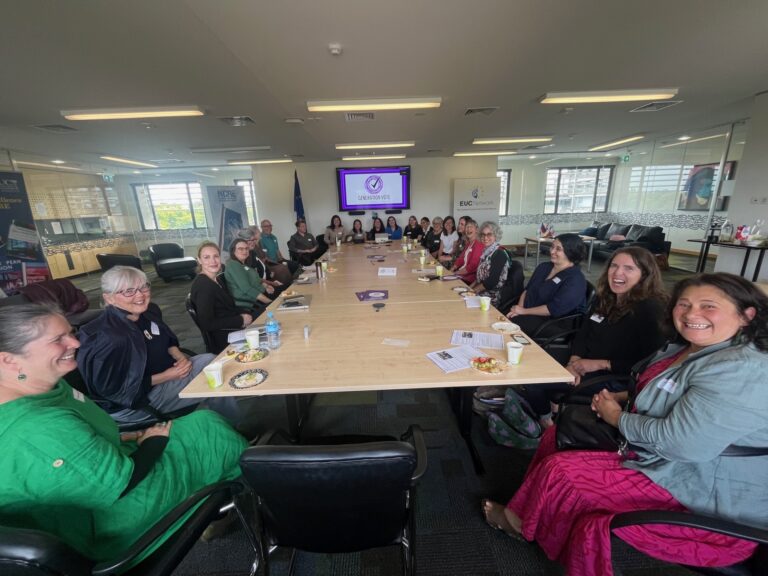

Working Group Convenor: Dr. Helena Cook, University of Canterbury | Te Whare Wānanga o Waitaha
Formed at the AGM in 2014, the objectives of the Civics, Citizenship and Political Literacy Working Group are:
To enable the objectives of the Working Group, the tasks of the Working Group and the needs of schools were the focus of a two day workshop in August 2015 at University of Canterbury hosted by the Working Group and including representatives of the Social Studies Teachers Association, Education Advisors to the Ministry of Education and Electoral Commission, as well as allied researchers and student representatives. This meeting confirmed the immediate tasks presented and confirmed by NZPSA at the national conference in December 2015 to:
The Civics, Citizenship and Political Literacy Working Group has hosted and participated in a number of events and initiatives.
Read our submission to the 2022 Independent Electoral Review/He Arotake Pōtitangi Motuhake, calling for the extension of the franchise to 16 and 17-year-olds in Aotearoa New Zealand.
Read our discussion paper that brings together contributions from researchers, educators and advocates working to improve the way we ‘do civics’ in Aotearoa New Zealand.
This discussion paper follows on from the 2014 working party and subsequent NZPSA workshops held between 2015 and 2017. It reflects the input and contributions of political and social scientists, community advocates, educators, business and young leaders who have worked as writers, or reviewers to summarise best practices for teaching civics, citizenship, and political literacy through-out life. We consider what governments, communities, schools and businesses can do to strengthen our democracy by supporting the citizen’s capacity to participate in public life. The choice of what sort of democracy we aspire to, and the values and skills we think are important for citizenship, are ultimately decisions and choices for the whole community. This report aims to inform public discussion about how to build resilience into our democratic system.
The following working definitions have been proposed for key terms:
In political science, civics is used broadly to refer to the knowledge, skills and shared expectations of citizens who participate in, and sustain, democracies.
It is both a legal status and lived experience. In legal terms citizenship is conferred on those in a community who hold rights to make claims and seek support from a community (the right to vote, to assemble, the right to access to education, health and social needs for example) and in turn have legal responsibilities to sustain and maintain that community, (through for example, paying taxes, obeying laws, voting and becoming informed).
However citizenship is also the outcome of lived experience, of being, belonging and participating in a community, in ways that support, maintain and enable a community to function effectively.
The ability to understand and interpret information about how and why community decisions are made (or not made), to support citizens to think critically, and make informed choices or take action where necessary, (often in cooperation with others), to advance particular concerns and interests, while also considering the possible consequences and impacts of these choices and actions for themselves and others.
If you wish to join the network and be part of our mailing list, please sign-up to the Association, or if you are already a member login here.